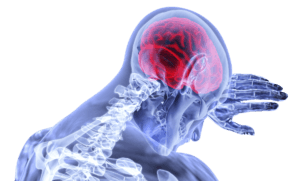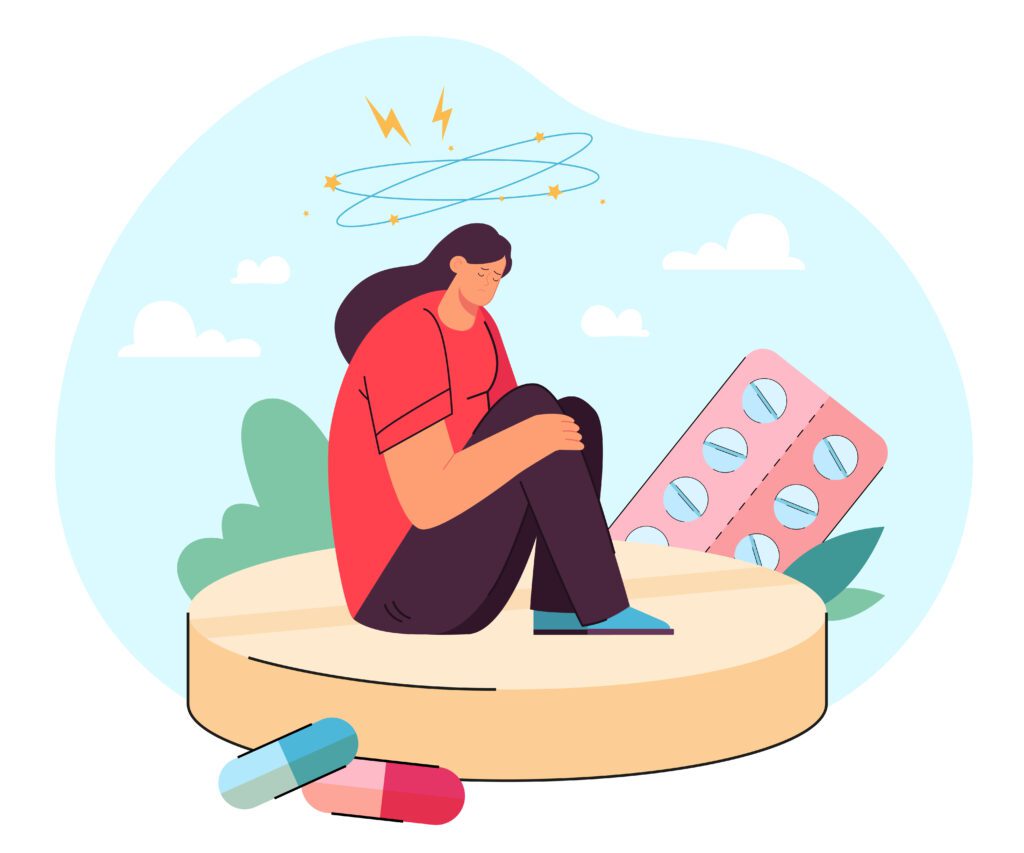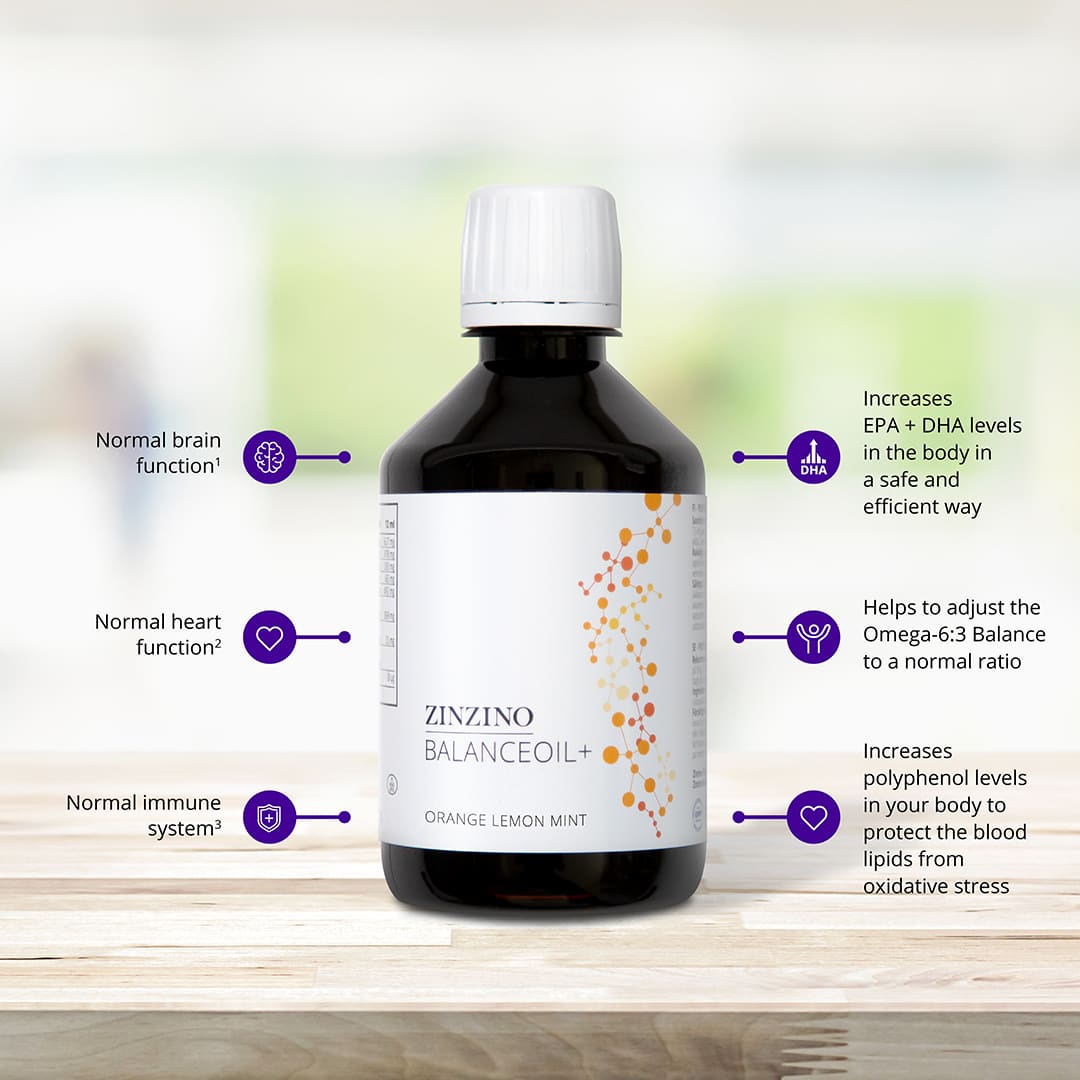Updated February 11, 2023

Natural Ways to Fight Depression:
The Role of Omega-3
Depression is a widespread mental illness that affects millions of people, but it can be treated effectively with the right approach…
The vast majority of people recover from depression. However, once you have had depression, there is an increased risk of later depression.
While medical treatments are available, they may not always be the best option for everyone, as they can cause side effects.
As a result, many people are turning to natural ways to fight depression, and one of the most promising methods is Omega-3.

Depression is a mental illness characterized by persistent feelings of sadness, hopelessness, and a lack of energy.
It is often accompanied by a decrease in interest or pleasure in activities and decreased motivation.
Depression can lead to feelings of isolation and withdrawal from social activities, difficulties with work or school, and changes in appetite and sleep patterns.
It is not a sign of weakness or a personal failing and can affect individuals of all ages, gender, and backgrounds.
If left untreated, depression can greatly impact one’s quality of life and lead to further health complications.
However, with proper treatment and support, many individuals are able to manage their symptoms and live fulfilling lives.
Omega-3, A Natural Way To Fight Depression?
Omega-3 is a type of fatty acid that is vital for our health.
It is found in fatty fish like salmon, mackerel, and herring, as well as in flaxseed oil, walnuts, and chia seeds.
Omega-3 is important for our brain, nervous system, and mood because it helps regulate inflammation and other processes in the body.
Studies have revealed that a majority of individuals struggling with depression and anxiety have low levels of Omega-3.
A study conducted in the Netherlands and published in the journal Psychoneuroendocrinology found that patients with the lowest Omega-3 levels experienced the most severe symptoms of depression.
The Dutch Study.
In the Dutch study from 2018, participants were divided into the following groups:
- 304 participants were only depressed
- 548 participants suffered from anxiety
- 529 participants suffered from both anxiety and depression
- 897 participants had recovered from anxiety/depression
- 634 healthy participants served as a control group
The researchers measured the blood values of Omega-3 and Omega-6 fatty acids in participants and used the results as a gauge of the fatty acid levels in the brain.
They also gathered medical history and medication information from all participants.
The findings showed that those with the lowest Omega-3 levels had the most severe depression symptoms.
This suggests that healthcare professionals should be cognizant of the potential high risk of low N-3 PUFA (Omega-3) levels in currently depressed patients, particularly those with severe symptoms.

Patients suffering from both anxiety and depression had lower levels of Omega-3 fatty acids than those suffering from depression alone.
Patients did not have low levels of Omega-6.
The researchers found no difference between previously ill patients and the healthy control group.
The study is in line with other studies, which reveal that Omega-3 fatty acids are of great importance to the brain, nervous system, and mood.
If deficiencies have been identified, the supplement can therefore be a simple, inexpensive, and side-effect-free supplementary treatment, which corrects the underlying causes of the symptoms on nature’s premises.
You can read the Dutch study here.

Image by pch.vector on Freepik
The Importance of Direct Supplementation with EPA and DHA for Mental Health
Sources of the various Omega-3 fatty acids and the important conversion.
Omega-3
ALA (alpha-linolenic acid) is a type of omega-3 fatty acid that is commonly found in plant-based foods such as:
- flaxseeds
- chia seeds
- and walnuts
It is considered a short-chained omega-3 fatty acid and must undergo a series of conversions in the body in order to become usable by the body.
We can only convert 2-12% of ALA into the long-chained EPA and DHA
EPA (eicosapentaenoic acid) and DHA (docosahexaenoic acid) are long-chained omega-3 fatty acids that are commonly found in fatty fish such as:
- salmon
- mackerel
- and sardines
These types of omega-3 fatty acids are more readily available for use by the body and do not require conversion.
They play a crucial role in supporting brain and cardiovascular health, among other benefits.
Omega-3 fatty acids come in various forms, with the short-chained fatty acid ALA being transformed into the long-chained fatty acids EPA and DHA through enzyme processes.
These active forms of Omega-3 are embedded in cell membranes and have multiple important functions within the body.
ALA can primarily be found in flaxseed oil, rapeseed oil, walnuts, and chia seeds.
Meanwhile, EPA and DHA are predominantly found in fatty fish such as mackerel, salmon, herring, anchovies, sardines, eels, catfish, and rainbow trout, as well as in cod liver oil and krill oil.
Unfortunately, we can only convert 2-12% of ALA into the long-chained EPA and DHA
This is why many studies and experts recommend supplementing with EPA and DHA directly, rather than relying solely on ALA sources.
Because the conversion rate of ALA to EPA and DHA is quite low, even a well-balanced diet rich in ALA sources may not provide enough EPA and DHA to effectively combat depression and anxiety.
By supplementing with EPA and DHA directly, individuals can ensure they are getting the optimal amounts needed to combat depression and anxiety symptoms.
How Does Omega-3 Work in Fighting Depression?
Omega-3 works by inhibiting inflammation in the brain, which is one of the underlying causes of depression.

Studies have linked depression to inflammatory changes in the brain where the immune system overreacts.
In a study conducted by researchers from Harvard University, participants suffering from major depression received either placebo or Omega-3 in the form of EPA (1060 mg) or DHA (900 mg) for two months.
The researchers found that supplementation with EPA had the greatest anti-inflammatory effect and the greatest effect on relieving depression.
EPA Inhibits Inflammation In The Brain With Depression.
According to several studies, depression can be linked to inflammatory changes in the brain, more specifically inflammations, in which the immune system overreacts.
In this regard, researchers from Harvard University experimented with 155 participants who suffered from major depression.
Participants received either placebo (cheating medication) or Omega-3 fatty acids in the form of EPA (1060 mg) or DHA (900 mg) for a period of two months.
At the end of the experiment, the researchers found that supplementation with EPA had the greatest anti-inflammatory effect and thus also the greatest effect on the relief of depression.
What is the Optimal Dosage of Omega-3 for Fighting Depression?
When supplementing with Omega-3, it is important to read the product label carefully to ensure that the daily dose of EPA is around 1000 mg.
For better absorption fish oils or vegan-based omega-3 supplements with polyphenols from pre-harvested olives has proven top be the best option.
The optimal effect of Omega-3 can typically be seen after 4 months of use, but some benefits may become apparent after just 1 month of taking the supplement.
Omega-3 supplements usually state how much EPA and DHA the product contains, so make sure to choose one that meets your needs.
Omega-6 and omega-3 must be in a balanced ratio
The brain contains large amounts of omega-3 and omega-6 fatty acids, which provide integrity to the neural network.
The omega-3 fatty acids also work in a biochemical interaction with the omega-6 fatty acids, where balance and type are important.
It turns out that the omega-3 and omega-6 fatty acids compete for the conversion to various substances that regulate inflammation and a wide range of other processes in the body.
This means that a high intake of omega-6 through vegetable oils, margarine, ready meals, meat, and dairy products, as we see in the modern diet, shifts the balance and increases the risk of chronic inflammation.
Therefore, most of us need to consume less omega-6 and more omega-3.
Both in the prevention of depression and the prevention of a wide range of other lifestyle diseases.
Learn more about the Omega balance here:
A Guide To Testing And Balancing Your Essential Fatty Acids For Optimal Health Benefits
For a Balanced Omega-6 To Omega-3 Ratio I recommend...
My personal recommendation is to use the subscription-based balance concept with tests, from the Scandinavian-based direct sales company, Zinzino.
BalanceOil+ is a test-based supplement offered by Zinzino that is designed to help you restore a healthy balance of omega-6 and omega-3 fatty acids in the membranes of your cells.
The supplement is formulated with a proprietary blend of polyphenols from pre-harvested olives and high-quality omega-3s, which combined in the right dose has proven to be more stable and resistant to oxidation than traditional omega-3s.
I would also recommend taking a look at Zinzino Viva, for me, those are a must-have in stressful situations, or when I need to feel rested the next day.
How To Get A Healthy Omega 6 To Omega 3 Ratio
Get A Balanced Omega 6:3 Ratio Close To 3:1 or lower in 120 days.
With The Test-Based BalanceOil+ From Zinzino, You can measure your before and after results!

Rising Antidepressant Use:
A Look at the Alarming Increase and the Role of Omega-3 and Inflammation
Increase in depression and inadequate treatment.
Almost half a million Danes are on antidepressant medication in a population of less than 6 million.
From 2000 to 2013, the proportion of very young people who received psychiatric treatment for depression tripled.
More young women than men are being treated
Consumption of antidepressant medication has increased by almost 60% in 10 years.
In about a third, the antidepressant medication does not work as intended.
Conclusion
From what we have seen in this post, it seems that a lack of omega-3 and inflammation in the brain increases the risk of depression.
References:
Disclosure: Some of the links in this article may be affiliate links, which can provide compensation to me at no cost to you if you decide to purchase a product or premier kit. These are products I’ve personally used and stand behind.